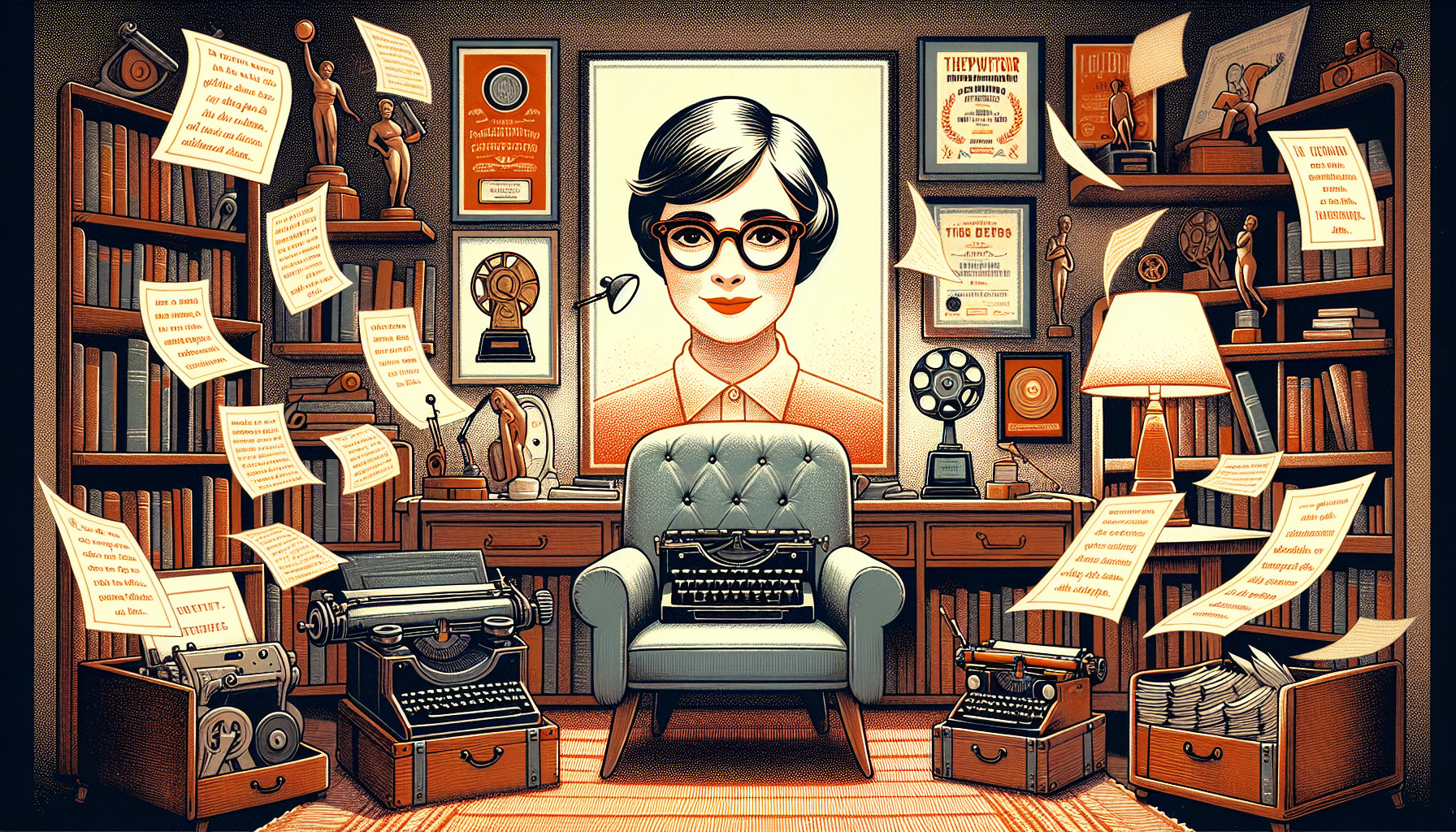
Who Was Nora Ephron and Why Should You Care?
If you’ve ever sunk into a couch and uttered, I’ll have what she’s having after a particularly good meal or movie line, then darling, you’ve been touched by the sparkling wit of Nora Ephron. She was the screenwriter, filmmaker, and journalist who turned the mundane foil of relationships into cinematic gold. You might recognize her from such hits as Sleepless in Seattle, You’ve Got Mail, and the cult classic When Harry Met Sally. But who really was Nora Ephron, and why does her legacy in Hollywood resemble a perfectly tailored witty rom-com itself?
From Newsrooms to Movie Scripts
Nora Ephron made the journey from the hallowed hallways of Wellesley College to the gritty newsrooms of the 1960s. Beginning her career as a journalist, Ephron reported for the New York Post, among others, and she was just warming up. It wasn’t long before she traded facts for the nestled comfort of comedy and emotion in the movie business (because those laugh-cry snorts won’t elicit themselves!).
Transition to Screenwriting: Spilling Tea and Screenplays
Ephron had a knack for observing the quirks of everyday life and translating them into witty, relatable dialogues. She wasn’t scared to spill the tea on her rollercoaster love life either, with her first screenplay, Silkwood (1983), followed by the semi-autobiographical Heartburn (1986), which was a thinly veiled recount of her marriage to Watergate journalist Carl Bernstein. Oh, the scandal and the screenplay—spicy!
The Ephron Brand of Romance
Nora Ephron’s films often resonate with those of us who have our heads stuck in the clouds, dreaming of that serendipitous love. Ephron spoiled us with Tom Hanks and Meg Ryan pairings not once, but thrice, crafting stories that combined the ideal mix of romance, comedy, and just a pinch of existential musings about love in the age of answering machines and AOL. Yes, Nora knew how to make us laugh, cry, and swoon, often all at once.
When Harry Met Sally: The Deli Scene Heard Around the World
Let’s not skirt around the legendary When Harry Met Sally deli scene, which possibly deserves its own star on the Hollywood Walk of Fame. This scene, illustrating a woman faking an orgasm loudly in a public place, not only etched itself into the annals of comedic history but also introduced Middle America to the concept that ladies could have what she’s having—and loudly, too. Genius!
Ephron’s Magic Touch
Nora Ephron knew how to tug at heartstrings and funny bones. Her secret sauce? Perhaps it was her ability to turn the prosaic into the profound, the everyday into the exceptional. Nora’s characters are as real as they are flawed, showcasing her love for realism sprinkled with a dusting of Hollywood magic. She had the audacity to write strong, multifaceted female characters who had more things to do than wait by the phone (groundbreaking, right?).
Late Career and Directorial Acumen
Not content to remain cloistered in the writers’ room, Ephron’s directorial ventures gave her stories that irreplaceable personal touch. In directing hits like Julie & Julia, she continued to merge her passion for strong storytelling with her love for food. Yes, she made us all believe that we could indeed cook our way through the beef bourguignon recipe from Mastering the Art of French Cooking and perhaps stumble upon our inherent greatness along the way.
With each screenplay and movie, Nora Ephron sprinkled a little bit of her witty magic into our lives, reminding us that while life may not always be perfect, it sure can be the perfect set-up for a good story—or a good laugh. Whether it was through the charm of handwritten letters in You’ve Got Mail or the heartwarming connections across time zones in Sleepless in Seattle, Nora redefined romance for modern cinemagoers and left behind a legacy that’s as delightful as a well-scripted meet-cute.
So there you have it, the effervescent world of Nora Ephron—a world where the dialogue’s snappy, the romance is heady, and even the deepest heartaches come with a side of humor. And if you find yourself revisiting her films like old friends (which, of course, you should), remember that Nora’s stories are timeless reminders that no matter the heartbreak, life, much like a well-made movie, goes on—preferably with a soundtrack by Harry Connick Jr.






